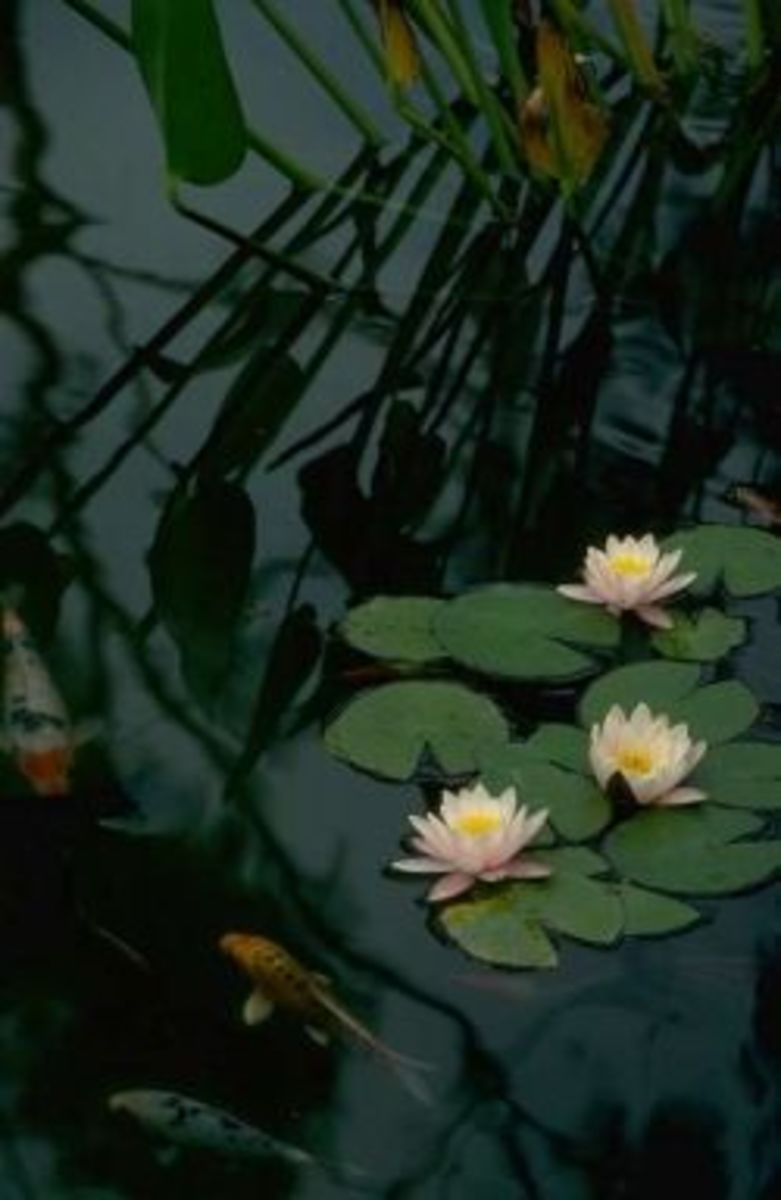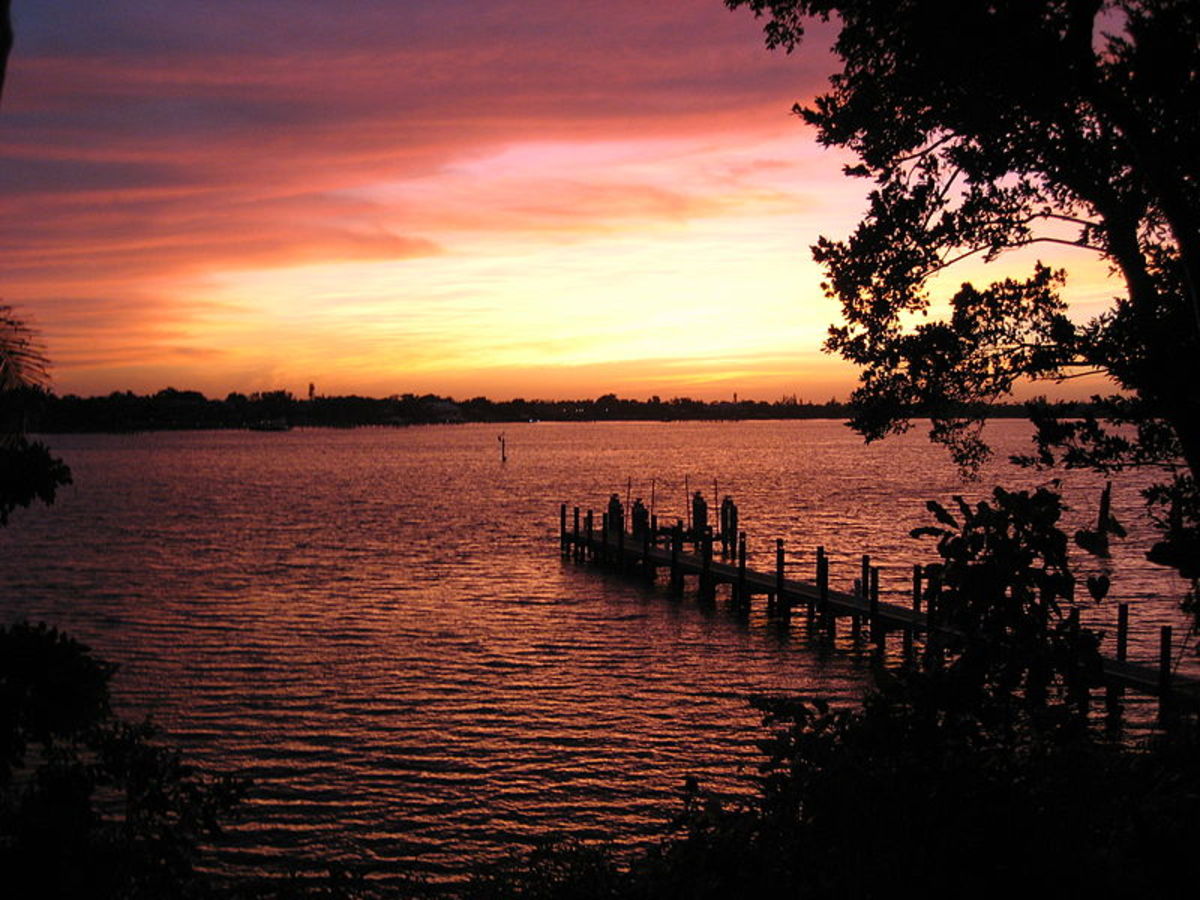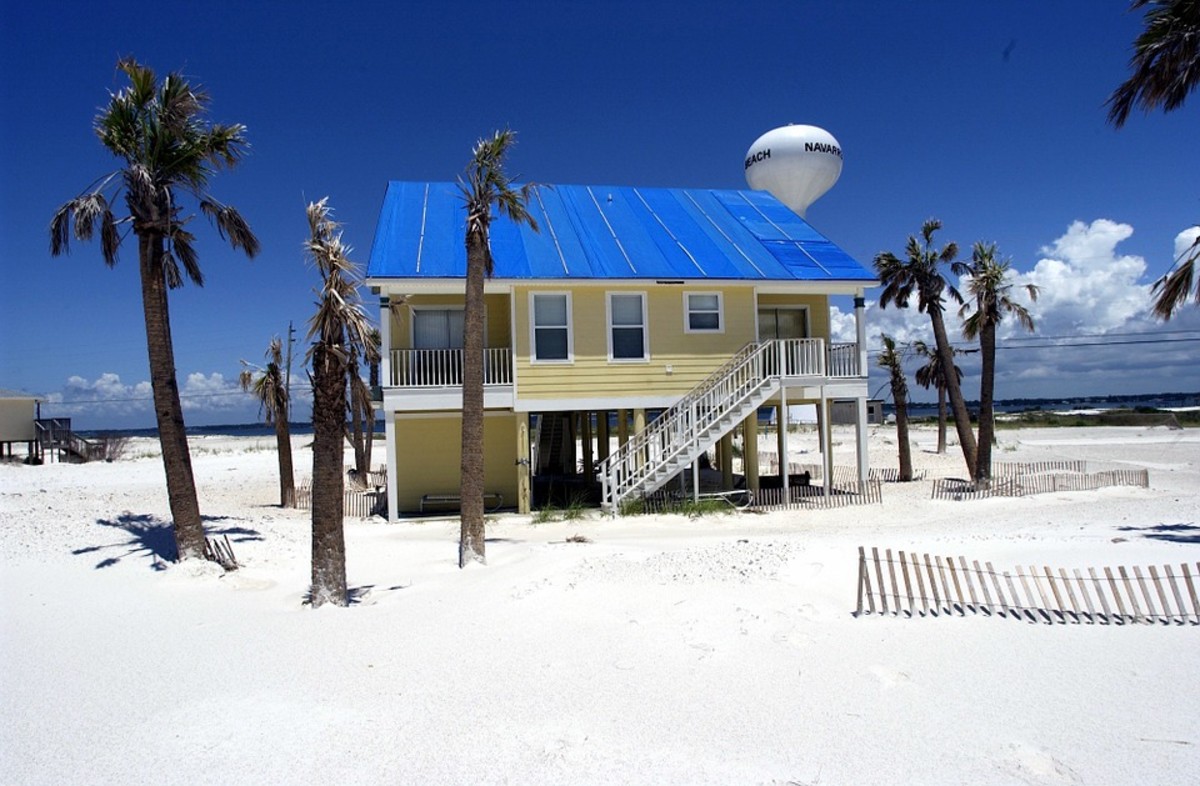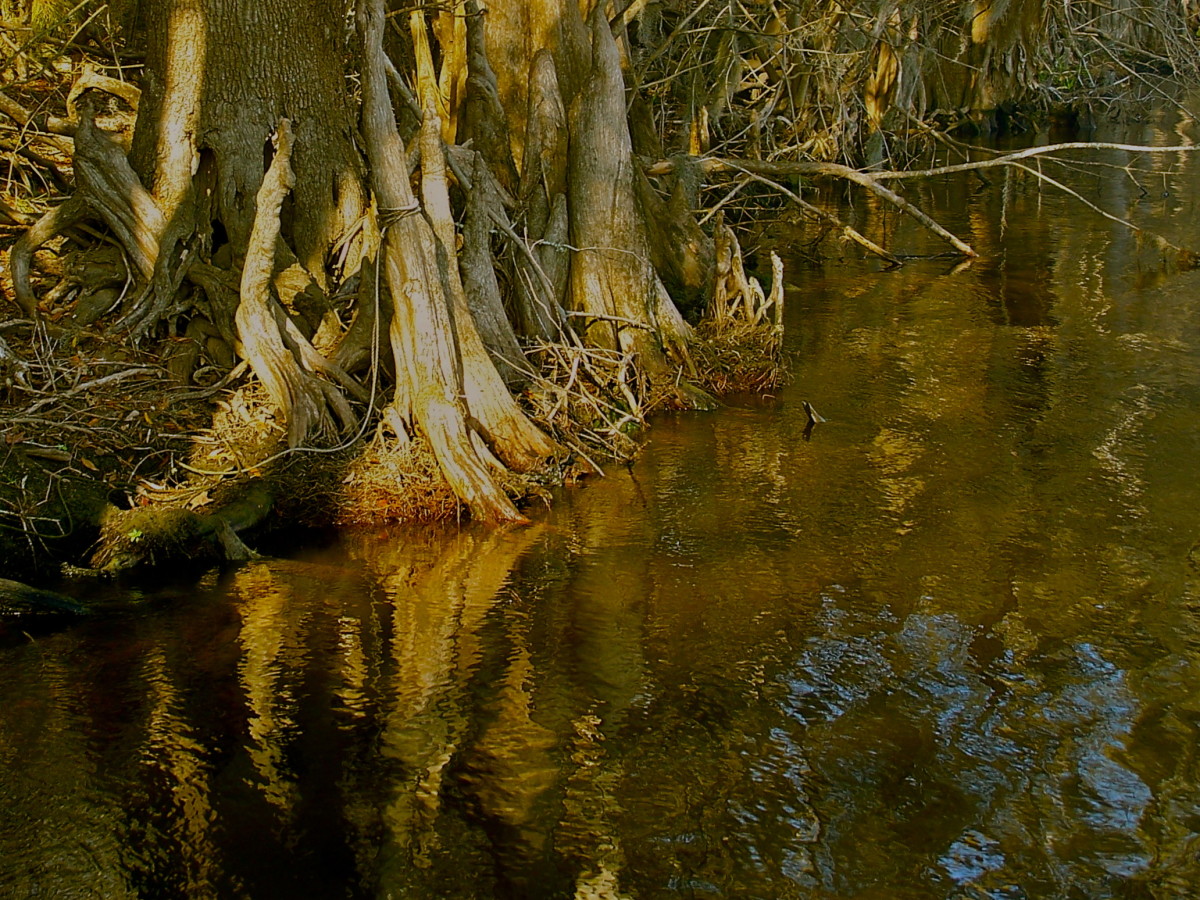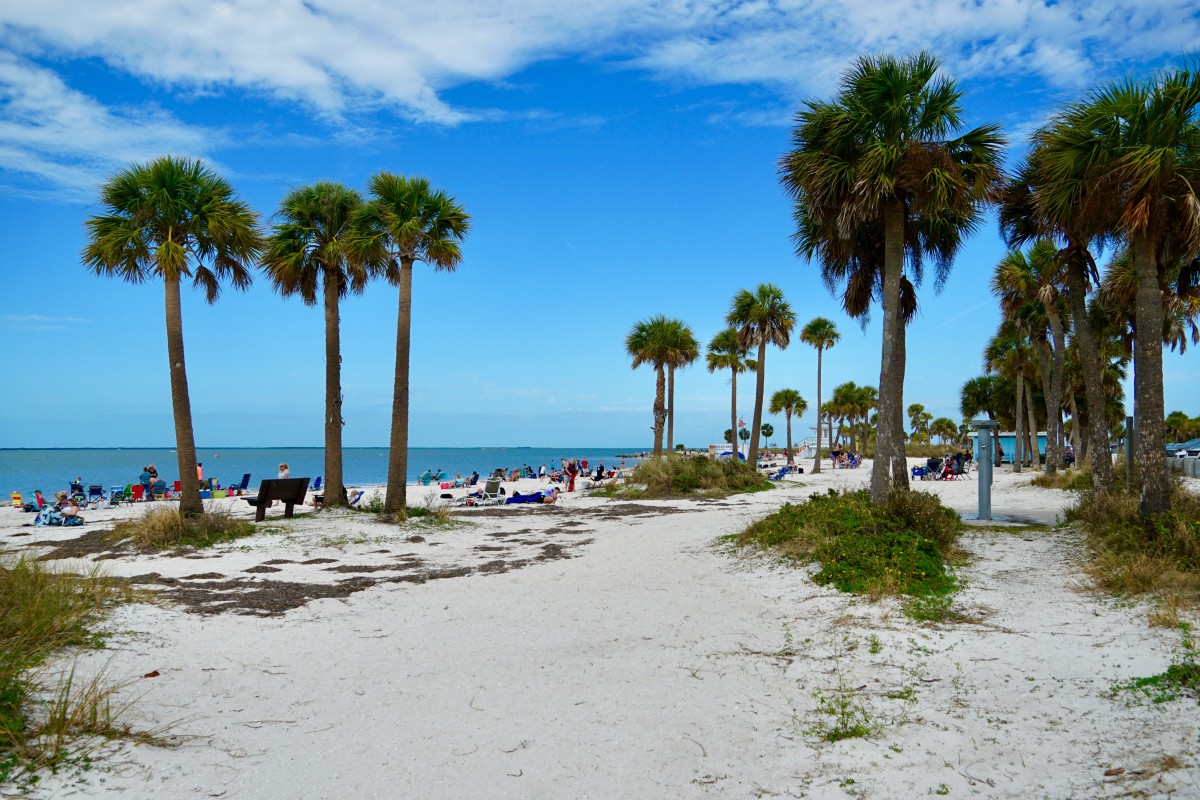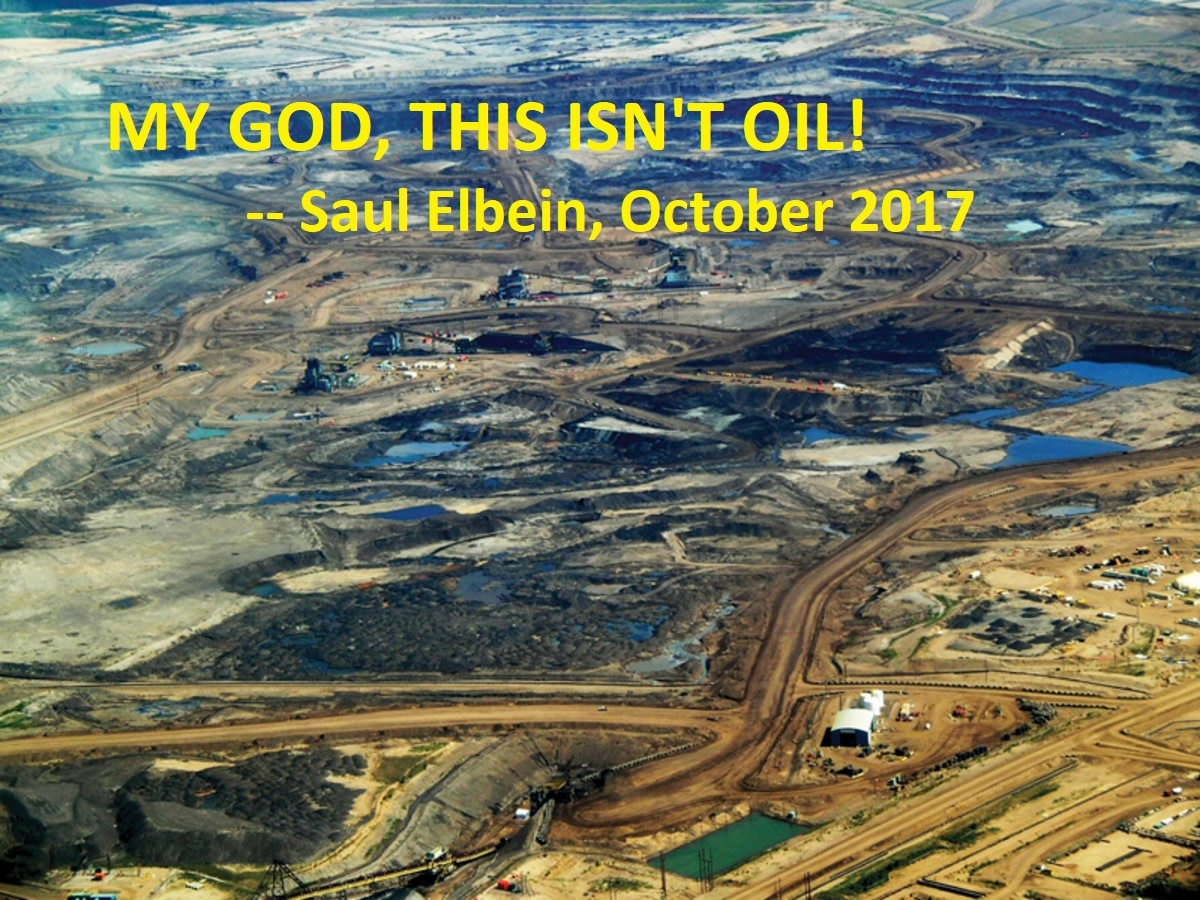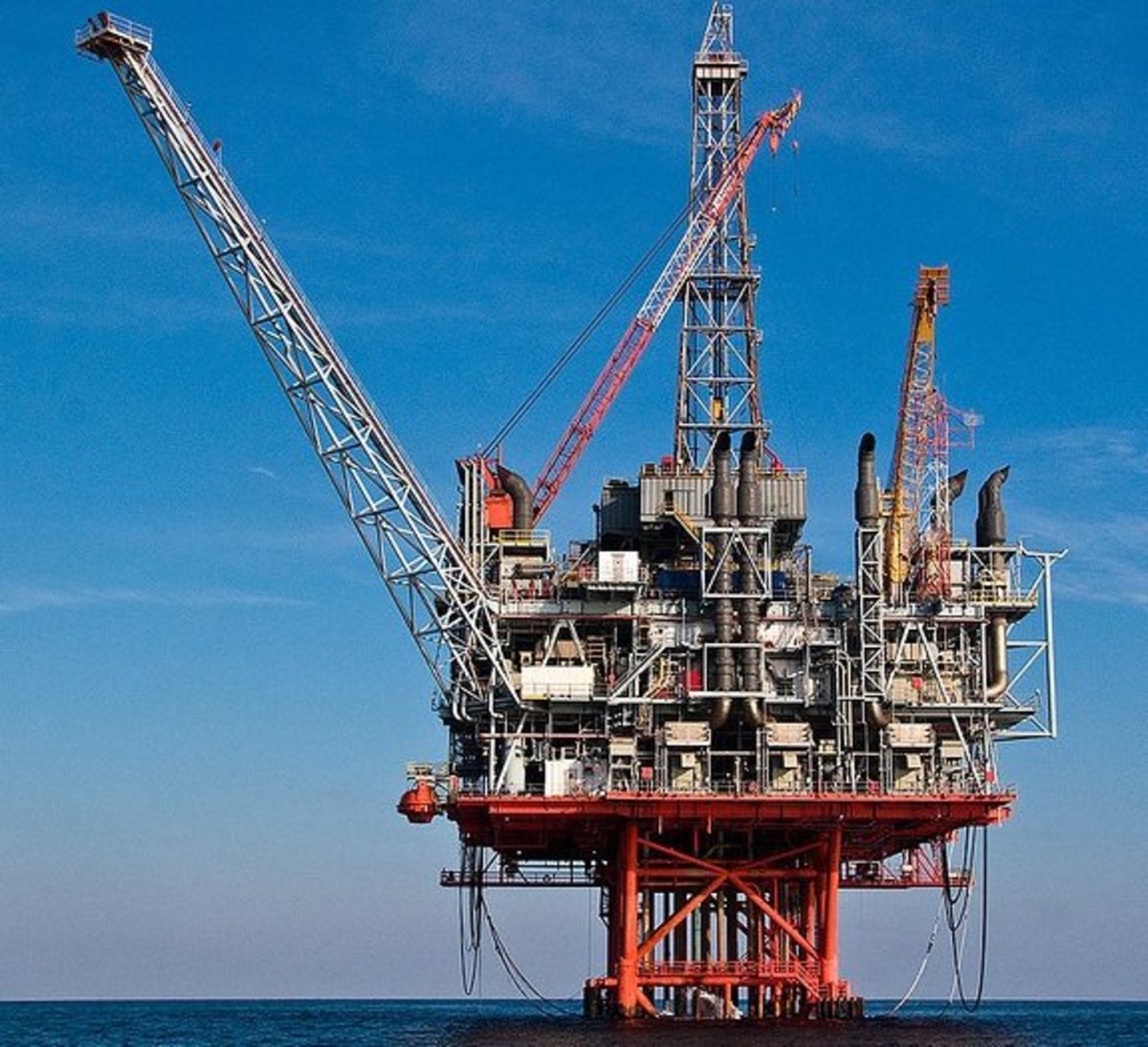A Florida beach, oil and thoughts on the future
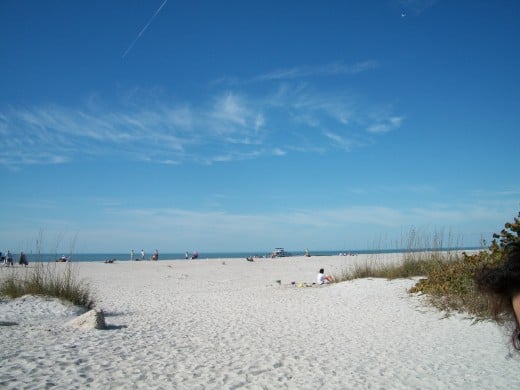
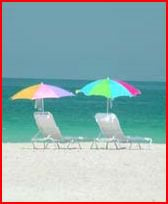
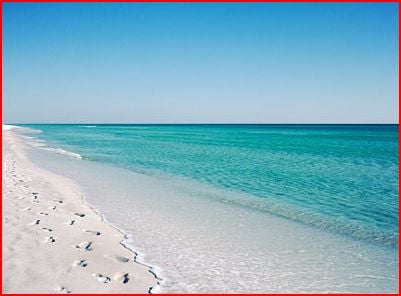
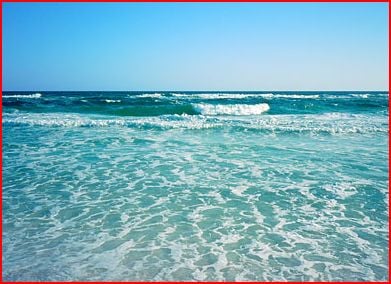
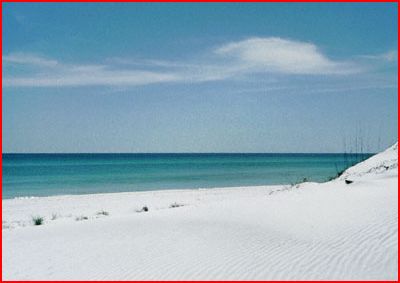
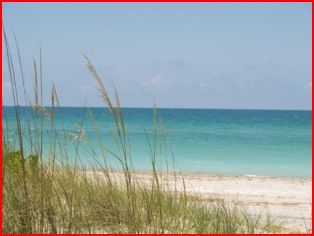

The beauty of the Gulf
I last visited Boca Grande’s south beach two weeks ago, arriving early in the morning to beat the heat, and to enjoy the heightened surf of the incoming tide.
A more beautiful morning never existed. My friend’s and my arrival made four people on that seemingly endless stretch of sand, not that unusual for this time of year but still a symptom of the times. The others were also women, so we were four middle-aged (or beyond) women enjoying nature’s glory.
My friend is a sun worshiper, and opted to stay in the shelter of our umbrella, strategically placing her legs where they’d catch the most rays, while I entered the green-blue brine. The waves rolled in with the half-hearted force of the Gulf’s tides, and the water shifted from mid calf to waist as I waded against the currents, shuffling my feet in the sand – in case of sting rays; it was their nesting season. It didn’t take many steps to find myself lifted off my feet with each surge and deposited back to a depth just under my chin.
The water was the same temperature as the blood in my veins, soft, warm and alive. I bobbed up and down, turned this way and that with the rolls, now staring out into the water and then, facing the beach. I raised my hand and waved to my friend, who being a non-swimmer watched me with visible concern.
Suddenly, I realized I was not alone. All around me, thousands of tiny little silver fish swarmed, kissing at my skin, an unbelievable number of fish. I swam twenty feet off to one side to leave the school, but there they were. It wasn’t a school; it was a population of millions, everywhere. I settled down to share the water; after all, it was theirs. And besides, there was no choice.
Though the thought of feeding sharks did enter my mind.
“Hey, there,” said a soft, southern voice.
I turned to see one of the other women had joined me, a plump, fiftyish gal, her grey-blond hair tied up in a knot on the top of her head, and she floated in a tube, kicking her feet to come closer.
“Look at all these fish,” I exclaimed, excited, a prairie dweller as thrilled as a small child in this alien environ.
“Yeah,” she drawled. “It’s the season for ‘em.” She disappeared from view for a moment, as a wave lifted her tube up and dropped me down at the same time. “So, where you from?” she asked once we regained the same level. “Your accent …”
“Canadian.”
“I love Canadians,” she assured me. “We haven’t seen too many this year. We run a fishing boat, but …” She left the sentence unfinished. “My husband’s out today – see?” She pointed toward the mouth of Charlotte Harbor, where a small flotilla of boats rocked up and down, tiny bathtub toys in the distance. “Tarpon season and the tournament’s on. Small entry this year. Could be the last; who knows.”
“You’re from here?”
“Yep, I’m a cracker,” she announced with pride.
Wow, a native born cracker – one of the few I’ve met. I encounter every flavor of New England accent each day, but rarely a Floridian. What an honor!
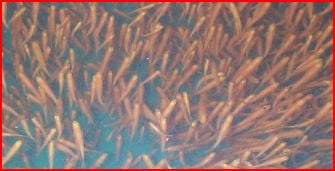
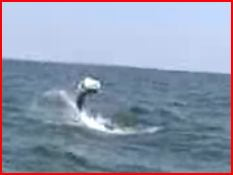
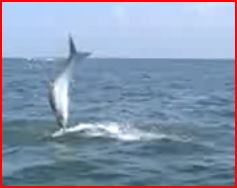
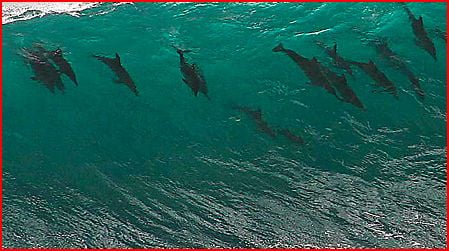
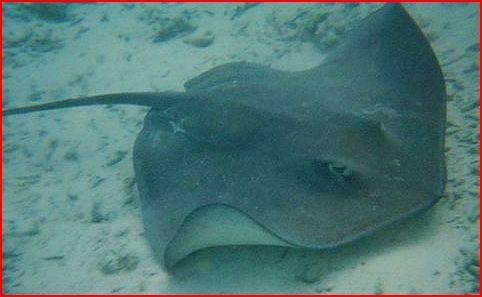
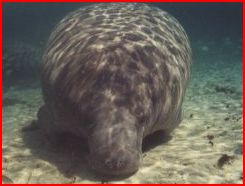
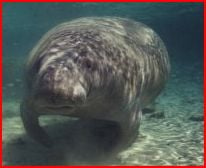
The bounty of the Gulf
The next wave spun me to face the open water, and a flash of silver caught the corner of my vision. I focused, just in time to see a dozen long, thick bodies leap from the water, and reenter with barely a splash – sparkling silver under the sun, only a hundred or so feet away.
“Ahhh –“ I yelped, pointing. “Look!”
“Tarpon,” my new-found cracker friend explained. “They’re here feeding on these.” She waved her hand at the tiny fish flitting around us.
I stared out at the water, willing more of the magnificent fish to appear. They did. Close by, another group arced a good five, six feet up, water dripping from their powerful long bodies, flashing as they did. Further out, more jumped, and more, and more.
I’m almost embarrassed to say this, but the sight brought tears to my eyes. Or maybe it was just the combination of salt water and bright sun. All I know is not all the warm water on my cheeks came from the Gulf. There is nothing in this world of man to rival God’s creations.
And perhaps it was my silent prayer of gratitude that brought them, but a pod of dolphins sped by, dorsal fins slicing through the water, close enough for us to see they had three young with them. We watched their antics and marveled at their grace. They, too, had come to dine on the Gulf’s bounty of little fish. I laughed, unable to keep my pleasure to myself.
My companion also laughed, but at me, pleased by my enjoyment of her world. “Now the beach is quiet, they’re not afraid to come in.”
I closed my eyes for a moment; they smarted so. When I opened them, I looked down to avoid the glare, only to see what looked like three cardboard squares at an angle float by at knee level: rays seeking the shallows to spawn.
I pulled up my feet in apprehension. I’d been told of the dreadful pain associated with the wound from a sting ray.
“Relax,” she said, laughing some more. “They’re harmless. You have to step on them before they’ll hurt you. Now those –“ she pointed at some jelly fish bobbing close by – “you want to avoid. Won’t make you sick or anything, but their poison hurts and’ll give ya a bad rash.”
“Okay,” I said, hoping the things would float off, farther away.
A larger than usual wave lifted me high, turning me once again to the beach. What the …? My companion and hers stood together at the water’s edge, shouting, pointing to the right and waving wildly for us to come back.
Full of nervous curiosity, my mind full of sharks, I started my foot shuffling return to the beach, a difficult task. Two steps forward, a receding wave, and one step back. My Floridian friend rode the waves in her tube, and at one point grabbed my arm to pull me in faster.
Finally, staggering through the surf, I made the beach. “What?”
The two women pointed at a spot fifty feet away.
A dark mass heaved and wiggled under the water’s surface. A shiny glob pushed up, glistening in the sun and then slid back under. The glitter of the sun made it impossible to judge the size, and the shape seemed in constant shift.
Oh, please God, don’t let it be … My heart sank in sorrow, while my mind tried to reason. It can’t be, not here. There’s been no oil sightings this far down the coast.
It wasn’t. The cracker tipped back her head and laughed to the sky. “It’s a manatee.”
We walked down the beach, the four of us to get a better look. Sure enough, it was one of those clumsy, slow moving enigmas native to Florida, a manatee or sea cow as the first Europeans called them. The glob I’d seen was its strange bulbous snout seeking air. Relief poured through my veins.
But the light-hearted joy of the morning was gone, not to be retrieved. In that moment I fully understood for the first time the nature of this catastrophe growing worse every day. It spells death to one of the richest living places on earth.
Yes, the full impact hit me then, and I’ve carried a sense of sorrowful mourning ever since.
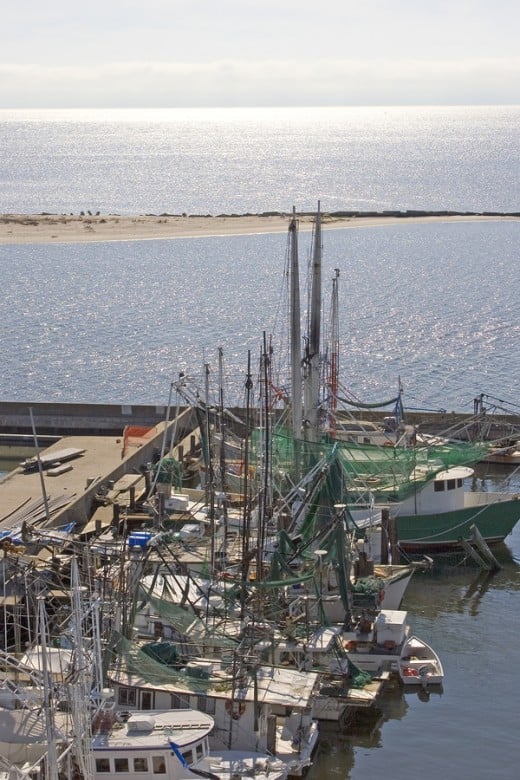
A Charlotte harbor fish broker says
In Charlotte Harbor and Punta Gorda, the fishing fleet stays in. No, the local waters are not yet polluted, but there is no market for the catch.
The owner of a Punta Gorda seafood warehouse has announced he will close his doors. After fifty years of rising with the sun, heading down to the docks to meet the boats and purchasing the previous day’s catch, he can no longer afford to continue.
“People have no faith the fish are clean,” he told me. “No one wants gulf fish; that’s for sure.” He wonders what the future holds. “Will they come up with some kind of test for these toxins? Has the Gulf shut down forever?” He shakes his silver-topped head, and shrugs, a mind-set that has become all too common in this beleaguered area.
And shrimp? The only shrimp I now see offered in the stores are product of China.

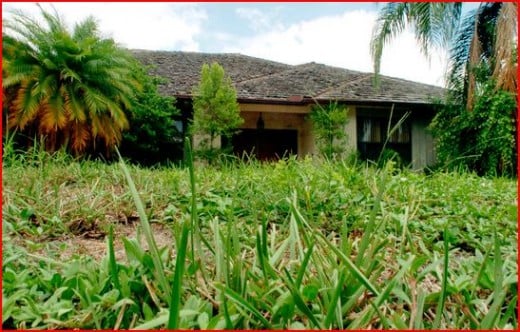
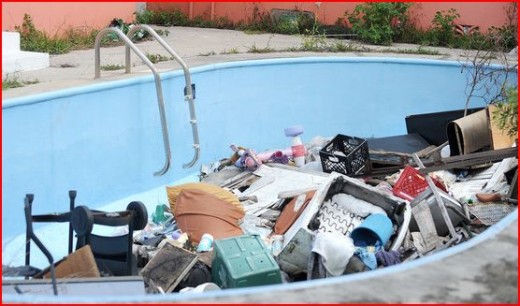
The Florida Gulf coast was already struggling
The southern west Gulf shore of Florida was already struggling,hardest hit of all states in the real estate collapse. Such a large percentage of local houses were owned as “second” homes by folks “up north” that when push came to shove, the owners let them go, abandoned them. The Charlotte Harbor area, at the best of times a sleepy combination of retirees, snow birds and young families who bought the last of the reasonably priced homes in the state five years ago, and now commute either to Sarasota or Fort Meyers (another hard hit city) to work, has been especially effected. Still recovering from the unexpected arrival of Hurricane Charlie in 2001, which caught residents unprepared. and literally devastated the residential areas,and the subsequent abandonment by insurance companies, the community was cannon fodder for the foreclosure crisis.
On any given street, the neglected empty houses stand out like a handful of sore thumbs among the well-kept homes of those who survive.
Yesterday, I saw a hand printed sign stuck up on the median on El Jobean (hwy 776) and could hardly believe my eyes.
4 bedroom, 2 bath, cash $59,000
Around the corner from me, a government owned house, new, built as a spec home four years ago and never inhabited has a sign tacked to the hurricane shuttered window.
$70,000 or best offer.
The house next door to me is empty, now held by Citibank who do nothing to keep it up. My husband mows the front lawn just so we don't have a derelict next door to us. It's one of four empty houses on a street of fourteen homes.
This is a middle-class area -- or was a few short years ago. You couldn't have purchased a house around here for less than $300,000 five years ago.
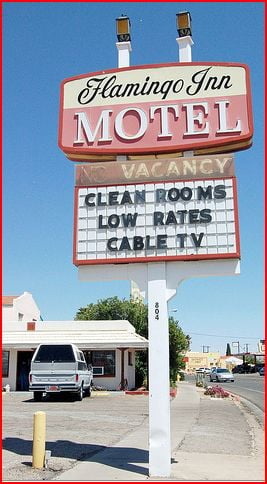
No more tourists
The dwindling tourist trade of the past few years was bad
enough, but with this latest insult – the oil spill -- the downturn has become
less than a trickle. Despite the best efforts of the state to advertise to the rest of the nation, "Florida still has 800 miles of clean beaches," the tourists stay away in droves.
I talked to Jack, a young man, father of four, front-end guy at a hotel on Siesta Key. “I don’t think we’ll make it to next season. [The ‘season’ is from late February to late April – you make your money then or die.] Both Jack and his father have made their living from the modest motel/resort for many years. In fact, Jack has never held another job. He shrugs.
They all shrug. They are helpless, anyway.
No BP checks coming this way.
Siesta Key, Casey Key, Lemon Bay, Boca Grande, Venice, Englewood, Fort Meyers Beach, Nokomis Beach -- take a drive, see the empty motels, the deserted restaurants and the beaches left to the birds.
The area is dying.
Underwater oil mass headed for Florida Beaches
- Oil Spill Headed For Florida | Logistics Monster
Contrary to earlier forecasts, new data shows the underwater oil mass, now bigger than the state itself, likely to hit Florida beaches. An excellent article.
A Florida panhandle town takes matters into their own hands
North of here, in the panhandle, the beaches are already fighting off the oil – and losing. One municipality has decided to defy the Federal system and tackle the clean up their own way. Using hand held vacuum systems, they are sucking up whatever oil they can find. Residents are paying for them from their own pockets.
Frustrated with the lack of action and leadership, this municipality is lawyering up, expecting court action over their simple act of self-preservation.
President Obama assured us just the other day that measure would be taken to help the Gulf residents. So far, all that has happened is the EPA has threatened a community doing what they can.
Who can figure?
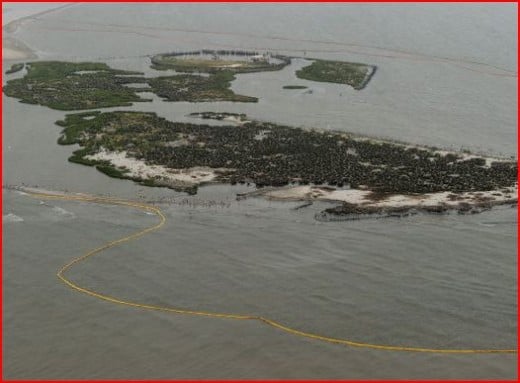
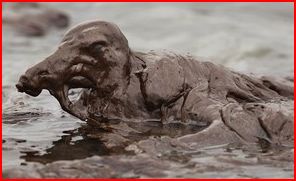
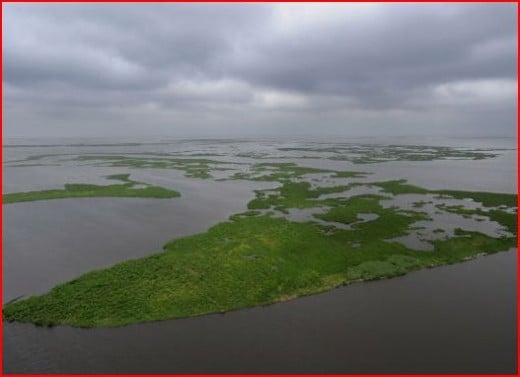
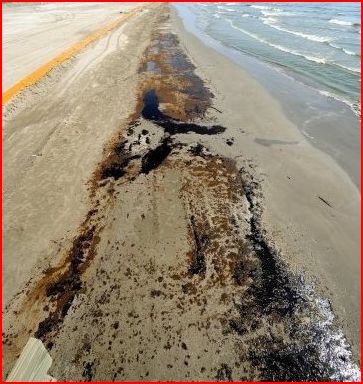
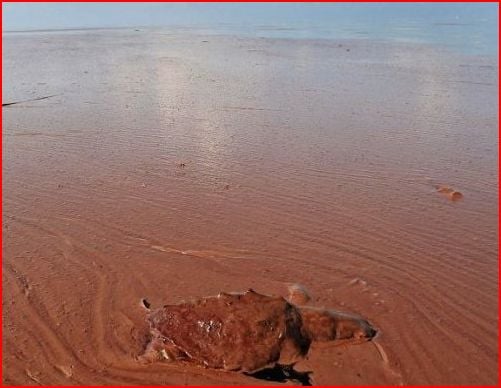
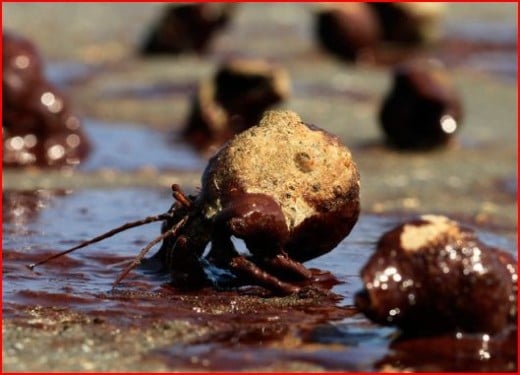
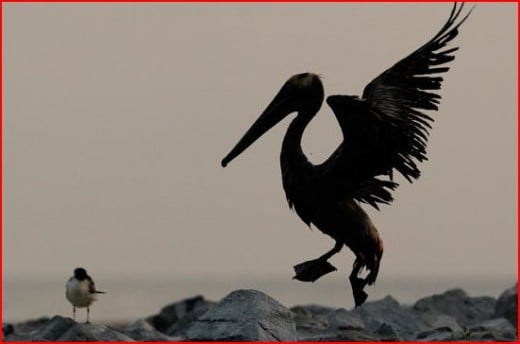
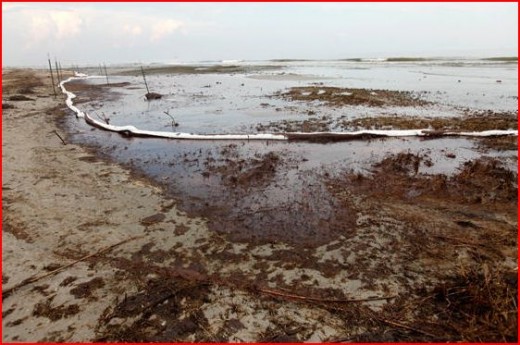
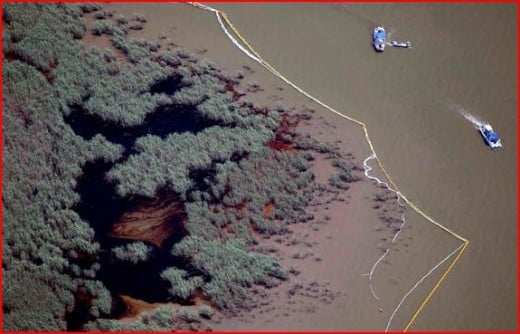
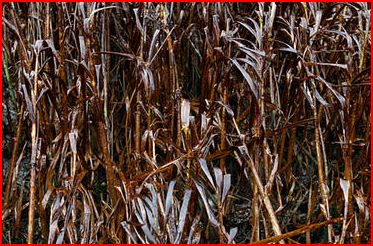
Meanwhile, back in Louisiana
My husband, Jim, is from Louisiana, and you can take a Cajun to the ends of the earth, or even to Canada for twenty years, and he will still be a Cajun at heart.
Every day, he goes on line for the latest reports on the devastation of his home state. I wish he wouldn’t. He walks around afterward, his face tight with anger, and talks of nothing else. He listens to his friends there, and hears the truth the news doesn’t report, or perhaps they are just local rumors – you know how that can happen.
Locals venture out on the Gulf in their private boats, booming off oil pools with their homemade barricades, and wait, sometimes for frustrated days, for someone to come with the equipment to suck it up. Sometimes the clean-up crews don’t show up at all, and those working so hard watch in bewilderment as the oil foils containment and leeches out and the goo seeps into the precious salt water marshes.
One man told us of how three small boats struggled to contain a large pool on the edge of the marsh. Two larger boats came to help set out the booms, but the Coast Guard arrived and told the captains of these crafts to leave, as their registration was not American. The Coast Guard stayed long enough to ensure they complied, but did not help lay the booms. That oil too entered the marshes.
The fishermen, the shrimpers, the local businessmen shudder as Louisiana senators prattle on about how deep-water drilling must continue “for job creation and growth.”
Job creation and growth? If any jobs are produced on these drilling rigs – will that offset the hundreds of thousands of jobs lost?
Bill Maher made a joke about it. “Only a Republican,” he says, “can look at a dead ocean and say, ‘Gee, I hope those Democrats in the Government don’t turn this into something bad.”
The fragile wetlands along the Louisiana coast are the nurseries of the Gulf, spawning and breeding grounds to thousands of species. While no one can deny massive efforts have been made to safeguard them, those efforts have failed, and failed miserably. We will not know for years, possibly many years, the true cost of this latest of mankind's follies.
Louisiana, still reeling from Katrina, still trying to heal from the insults done to the marshes during the state's oil boom of four decades ago when massive dredging ripped up the marshes with no thought of natures plan, is ill equipped to handle this latest crisis. And it is apparent by the profound stupidity issuing from the mouths of her political leaders, the poor state is lacking in any kind of intelligent direction.
Without these marshes, not only will the sea life suffer, the state herself will be eroded as far inland as Baton Rouge (the first firm land to be encountered when traveling upstream on the Mississippi.) Scientist have warned of this for decades.
As my husband, Jim, says in finest Louisiana manner, "There ain't nothing but those grasses holding that mud in place."
Since 1970 environmentalist have urged the construction of barrier islands off the coast of Louisiana to offset the damage to the marshes done by man. Louisiana loses about fifteen feet of land per year. So far, no such action has been taken. So far, scientist say, the marshy coast of Louisiana is almost a mile further inland than when the state entered the union.
The island of Grand Isle, builds twenty feet of artificial land each year and loses most of it to erosion. The Mayer of Grand Isle asks for state help every year. "We are sinking. In another ten years, Grand Isle will not exist."
By the end of this year, Grand Isle will be unlikely to be fit to live in.
The booms have failed, the oil travels further into the marshes each day. The photograph to the right was taken a month ago, and the oil has traveled hundreds of feet further since that time.
No environment can survive the kind of toxic onslaught now underway.
The Louisiana Legislature has called for a day of prayer to stop the oil. Can't hurt. But may I suggest they say those prayers while actually doing something?
God helps those who help themselves.
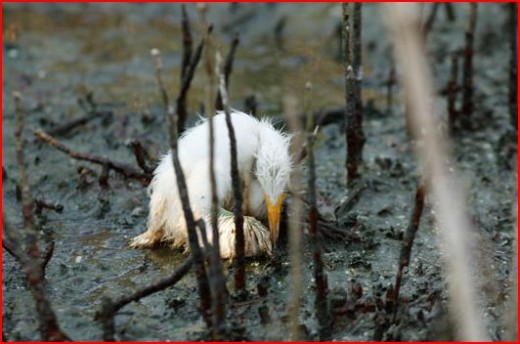
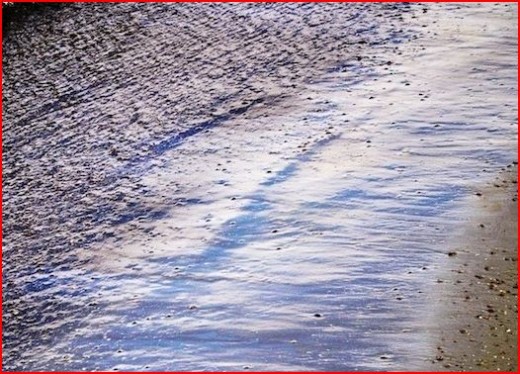
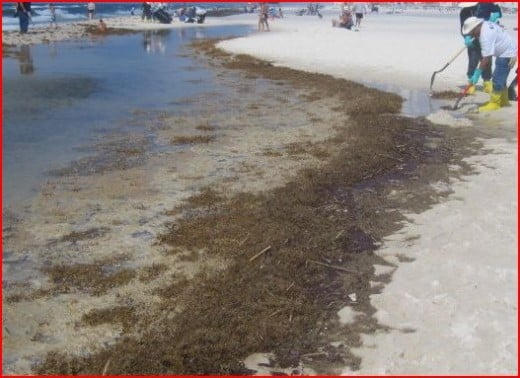
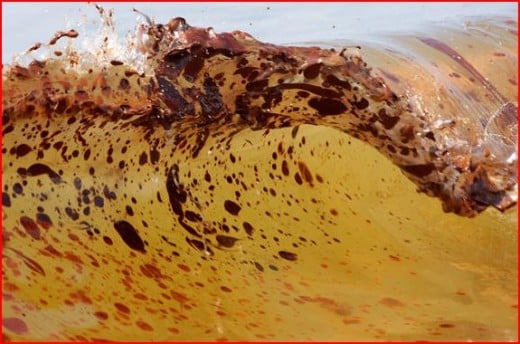
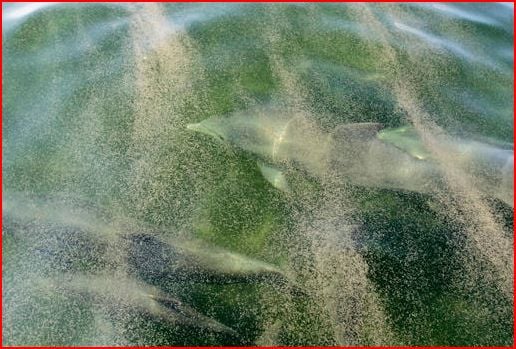
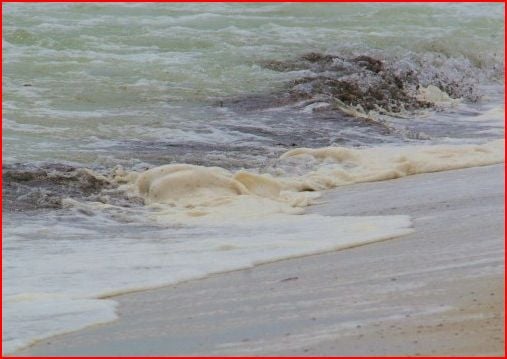
Alabama, Misissippi -- and Florida
They say that Nero fiddled while Rome burned. Well, in an instance of equally psychotic denial, officials in Alabama left beaches east of Mobile open, and tourists played in the waves, while drifts of dead seaweed, oil, foamy goo and tar balls washed ashore. What finally drove the revelers out of the water was a bevy of sharks, forced into the shallows by the invading toxic mess. You didn’t hear about this on CNN, did you?
In fact, last week CNN ran a light-hearted story about things you can do on a toxic beach. Yes – in case you already booked your travel plans and prepaid them, you can still enjoy the sun (provided the smell of oil and dead and decaying life doesn’t bother you) but “Don’t,” they warned, “go into the water.”
Reminiscent of the time Kuwait was on fire and CNN’s leading story was ‘how to properly cook your Thanksgiving turkey’, I shook my head in disbelief.
True – and I’ve seen pictures of clean-up crews working on that Alabama beach, while ordinary folk played in the water.
We haven’t heard much from Mississippi, possibly the least attractive waters in the Gulf (for humans at least) due to the effects of “Big Muddy” dumping her load of mud and rich farmland sediment into the waters. But let’s face it; if the oil is in Louisiana and Alabama, it’s bound to be in Mississippi too. Those waters may be brown, but with all the rich feeding of that particular mix of river and ocean, they teem with life – or did.
And finally, it arrived in Florida. Panama City, jewel of the Emerald Coast saw the sludge and goo arrive a few short weeks ago. The local population organized immediately, cleaning the beaches beforehand, and boomed off each onslaught as it arrived. They waited for the EPA to arrive, and waited, and waited some more. It was here one enterprising citizen found a vacuum system for sale on the internet, and ordered it. He went with a friend and within twenty minutes had sucked up enough goo from the water to fill a 45 gallon drum. Then he filled another. And another. A group of concerned citizens pooled resources and ordered more of these units (cost $275.00 each.) Soon, the Panama City beaches swarmed with people standing thigh high in the water, or on the beach sucking up oil.
The local government defied the orders of the EPA officially, and continued their operations. Lawyers are now stacked up to the sky to defend their actions, and they go on as I write.
Does any of this make sense to anyone?
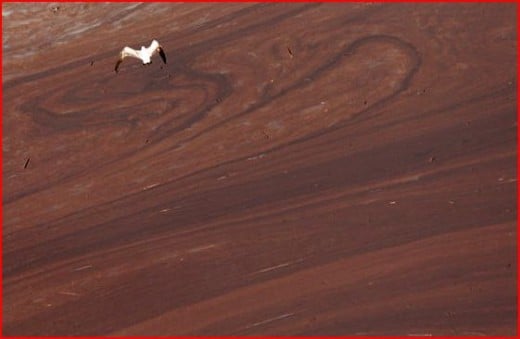
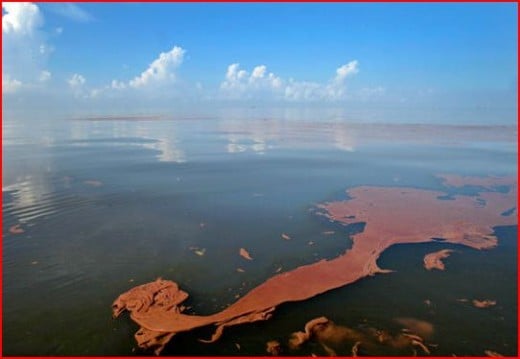
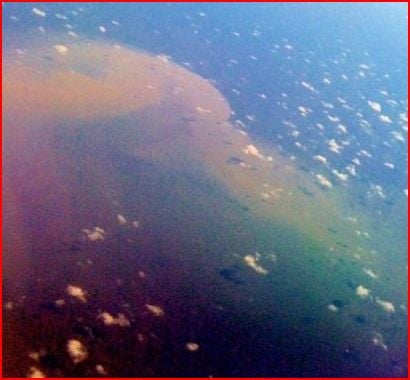
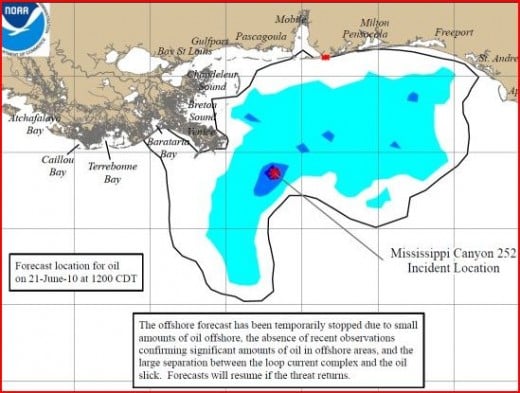
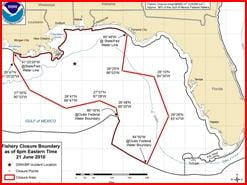
Think
No one is sure of the amount of oil in the Gulf. They can't track the amount or the number of submerged "clouds" (in fact, until now, it was unknown that oil could travel underwater) nor can they predict where and when it will go.
Here, on the west coast of south Florida, we've believed the reports stating we will be spared this horror, but now they tell us this mass, now as big as our state, is likely to hit us after all. If that is so, God help us. We are already in desperate times. Yes, there is much money in Florida -- loads of it, but all held in private hands and unavailable for public works.
What is to be done? What can be done?
They tell us if a hurricane hits now, it may rain oil as far inland as 700 miles. Fitting revenge from Mother Nature perhaps, but only if it falls on those that made the money oriented decisions that unleashed this horror upon us.
This is unlikely to remain a problem only for the residents of the Gulf. Ocean currents as they are, most likely those submerged clouds of oil will travel the globe, killing everything in its path. What price will we pay for our foolishness?
Sooner or later, oil must become the fuel of the past. In our greed to suck that last reserve from deep inside our Earth, we have unleashed what is surely a plague upon our globe for the foreseeable time to come.
While BP frantically throws money at the problem without asking anyone's pardon, the menace grows unchecked.
In our resistance to change, we have destroyed one of the greatest food producing bodies of water on our planet. Oil or food? Is there really a choice here?
No matter how much money is made, it will never reach the hands of those who've paid the highest price. It can never replace what has been lost. And no matter how much is squeezed out of the limited coffers of BP, it cannot buy us a new planet to live on.
My husband, who you now all know is named Jim, works as financial controller for a green corporation here in Florida, one that buys, markets and promotes alternative resources and renewable options. As said by the President of that corporation, "We have the alternatives; we're ready to go forward, but as long as the oil companies keep their prices low, we cannot sell them."
Do you think there might be a plot in place?
If a country as poor as Brazil (and remember that country was officially bankrupt and defaulted on national debt not that long ago) can put in place a program to outfit all vehicles to run on ethanol and succeed, why can't we?
What made this possible for Brazil -- a centralized effort and strong government partnership in the process.
But not here, no not here. That reeks of socialism.
So when Florida's beauty is cloaked in reeking toxic oil, when she is a state of abandoned houses and bankrupt businesses, when her abundant wildlife and living waters are dead, you can all congratulate yourselves on how capitalism is the best way -- unfettered capitalism worked its wonders. See the mighty republic.
Still, to this very moment, Louisiana's senators plead for more deep water drilling permits. Congress lines its collective pockets with payoffs and largess. What care they for the plight of the Gulf coast?
"BP will be made to pay for this." They've already paid some thirty something million. They assure us all will be well. It won't. The real damage cares nought for money, and by the time this tragedy plays itself out, I imagine neither will we.
If I could i would pose two questions to those heavily sponsored souls in Washington who are supposed to represent the best interest of the people. What of your role in this mess? When do you pay for what you've done?
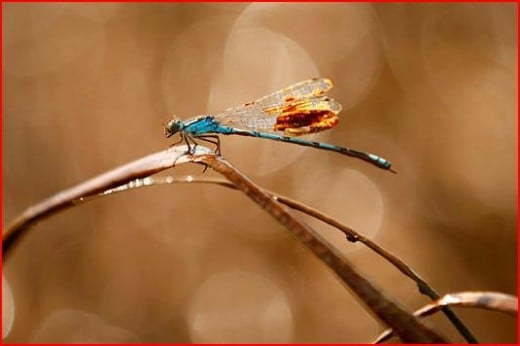
New! An article from a veteran home from Iraq "Why America needs to free herself from oil"
- Why America needs to free herself from oil -- CNN
A remarkably lucid and intelligent article from one recently returned from Iraq on the true cost of America's oil dependency, and the pressing need for change -- from both a political and environmental view.
New! The population of the entire Gulf region face another hazard.
In my recent research into the state of affairs of the Gulf oil spill, I find mounting evidence the populations around the Gulf face a new hazard -- air born toxicity from the oil and the chemical dispersants now floating in a mass bigger than the state of Florida causing widespread illnesses, and chemical pollutants in the air reading off the charts in ALL areas east of the spill.
Our prevailing westerly winds are driving toxins, evaporating into the atmosphere from the petro/chemical mass east and are now affecting residents from Louisiana to Florida.
First hit, coastal Louisiana is reporting a new illness of respiratory system and skin affecting many in those towns with the greatest and longest exposure. This illness is now dubbed "Gulf Syndrome" and while the governments hide from this fact, like ostriches with their heads in the sand, the toxins in the air continue to mount.
I will write another hub on the oil spill, focusing on this issue as soon as time permits.
I have also read the account of a journalist with first hand experience on the spill site who claims, "BP considers the workers on the spill and the population of the Gulf as expendable."
I am trying to contact this journalist to ask her questions, and for permission to reprint portions of her articles.
There is far more at stake here than any of us originally imagined.

